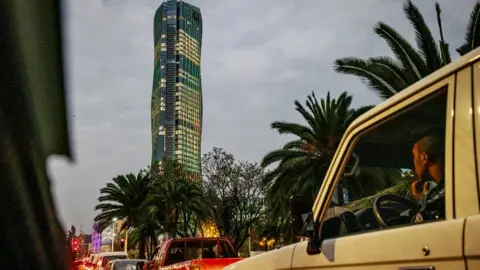
The International Monetary Fund (IMF) has approved a bailout of $3.4bn (£2.6bn) for Ethiopia to support its economic reforms over the next four years, BBC has reported.
The Horn of Africa nation has been struggling with chronic foreign currency shortages and high inflation – largely blamed on the brutal two-year civil war in Tigray, which ended in 2022.
“This is a landmark moment for Ethiopia,” said Kristalina Georgieva, the IMF’s managing director, adding that it was “a testament to Ethiopia’s strong commitment to transformative reform”.
News of the deal came after Ethiopia floated its currency – which analysts say was a key step in securing the loan.
Monday’s announcement saw Ethiopia’s currency, the birr, lose nearly a third of its value against the dollar.
The IMF said it would immediately release about $1bn to help Ethiopia’s “balance of payments needs and provide support to the budget”.
Ethiopia – Africa’s second most-populous country – has also been in talks with its international creditors to restructure its debt.
In December it became the third African country in three years to default on its sovereign bond.
After the war in the northern region of Tigray ended, other conflicts in Oromia and Amhara have put pressure on the spiralling economy.
Ethiopia’s new IMF-supported economic programme is intended to stimulate private-sector led growth.
According to the IMF, this should allow for more spending on areas like health, education, investment and social safety nets.
Expanding the coverage and increasing support to the most vulnerable households was a key part of the government’s reform agenda, it said.
“The IMF looks forward to supporting these efforts to help make the economy more vibrant, stable, and inclusive for all Ethiopians,” said Ms Georgieva.
It is also expected “to help catalyse additional external financing from development partners and provide a framework for the successful completion of the ongoing debt restructuring”, the IMF statement said.
Addis Ababa has been seeking to get more than $10bn in support from international financial institutions such as the IMF and the World Bank.



